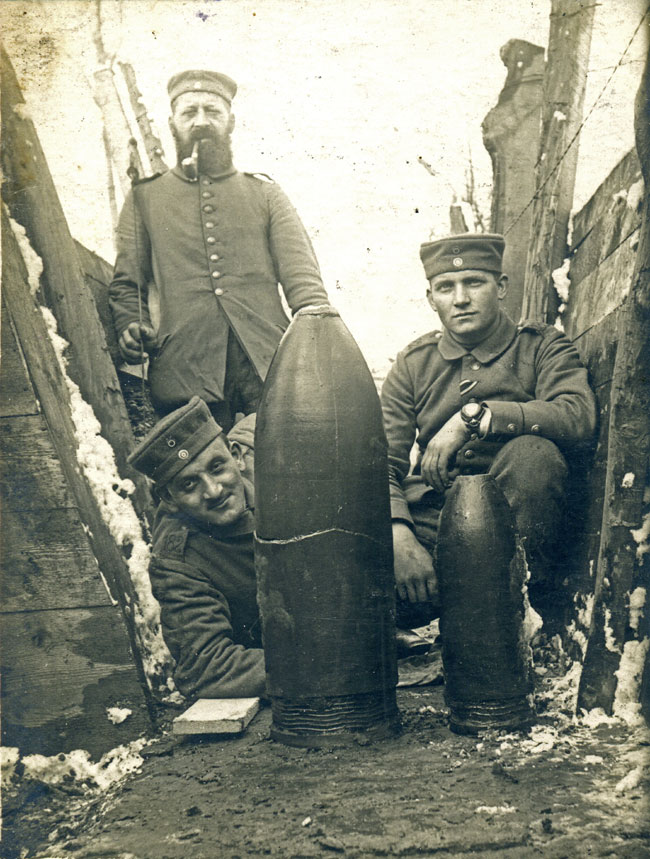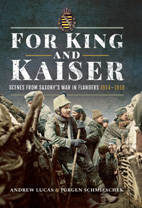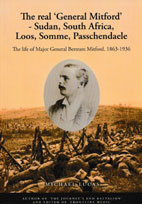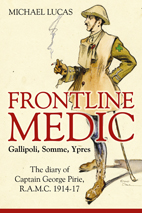For King and Kaiser includes a whole chapter of Pache's letters home from the Wytschaete salient, previously published only in Saxon veterans' newspapers in the early 1930s and (to our knowledge) never previously translated into English.
The following is an excerpt from one of these letters, addressed from the trenches at Wytschaete. It is dated 28th January 1916, only a day after the events it describes.
...In the afternoon the enemy artillery suddenly opened a half-hour's drumfire on the second trench in our reserve line. We hadn't heard such a racket since Souchez. Luckily my detachment was spared. Only a couple of heavy shells and shrapnel pots went onto the second line of our position. However they did drive us out of the dugout, which rang in all its brand-new joints at every distant or close impact. Outside we observed how the howling masses of iron went over us toward Wytschaete, the Rote Villa, the Zahnstocherwald and the Sachsengraben. Then suddenly a huge flame arose among the shot-denuded spruce trunks of the so-called 'Zahnstocherwald' ['Toothpick Wood'] (the name very aptly describes the state of the remaining trees) and dense smoke welled skyward. A dugout was burning. It was the company commander's dugout in the so-called Bereitstellung [immediate reserve position] Every two weeks I too am there for six days together with batmen and orderlies. When the artillery duel had died down somewhat, I sent my orderlies up there and allowed myself to make enquiries. Meanwhile the commander of the company there, Rittmeister C, was already being sought after by telephone throughout the regimental sector. He had first been transferred to our regiment after Souchez. Around evening it became a tragic certainty, that along with his batman and orderly he had been burned and buried in the dugout. It was only today that the three bodies could be excavated.
Before the world war 'death on the field of battle' was for every man surely an occurrence more or less enveloped in poetry - but in reality it is for the most part so heavily accompanied by terrible, even sickening details, that one understands why poetry must subsequently exert its mitigating, transfiguring effect, if man is at least to be able to bear it in memory. Nothing is so unpoetic, so gruesomely prosaic as such a death - therefore poetry must come and elevate it into the sphere of the high and the beautiful, out of the realms of filth, stench and loathsome hardship! -
You wouldn't believe what an effect the sight of the first snowdrop has after such an experience! I found it blooming in the ruined and overgrown garden of the so-called Einödhof, which lies in the meadow right behind our trench. And the day before I had heard the first starling singing on the barren, shattered stumps of the 'Zahnstocherwald'! A starling, a snowdrop! When one sees dear and diligent men die in such a terrible and needlessly gruesome way, one may doubt God's goodness - but the first twittering of birds, the first shy bloom of the coming spring lets us fervently believe in it again!
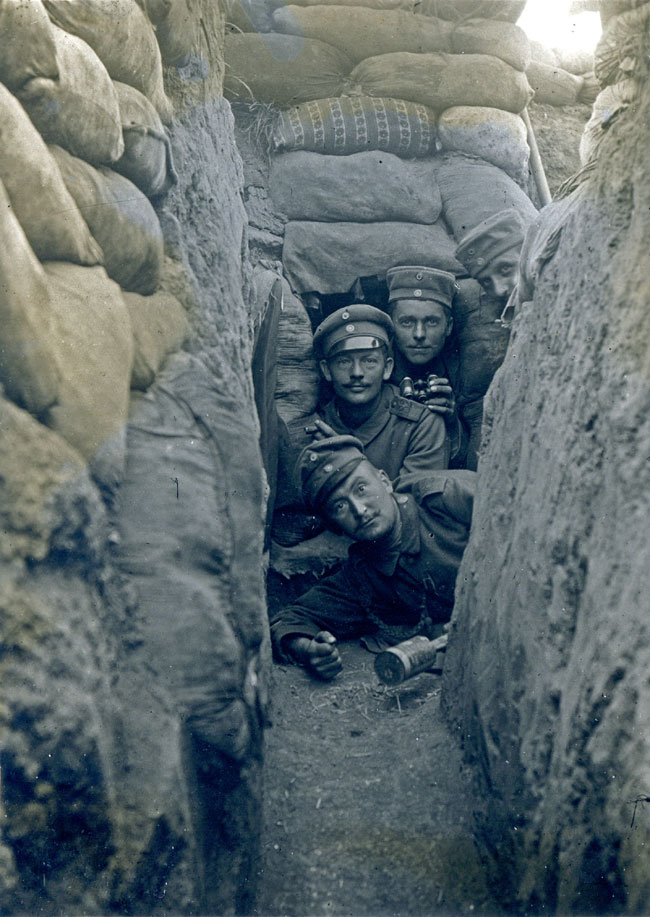
As my wife has pointed out, the snowdrops and the return of migrating starlings at the end of January would have been among the very first signs of the change of season. It is striking that even after a second winter at war, major battles and the deaths of many colleagues (among them no doubt many friends) Pache seems to have sincerely retained the instincts and aesthetic ideals of a Romantic poet. Though we know of no poetry written by Pache, his earliest known publication (1904) is a study on nature symbolism in the work of Heine.
The profoundly unfortunate Rittmeister C is identified in Pache's regimental history as Rittmeister d.R. Theodor Walter Coccius, born in Leipzig on 13th October 1878. This recently promoted ex-cavalry officer from Saxon Ulanen-Regiment 17 had been commander of 6./182 since 27th October 1915. Pache had therefore known and worked with Coccius for at least three months. Pache's regimental history records the latter's death as follows: "On 27th February [1916] for the Kaiser's birthday from 4 to 6pm heavy bursts of artillery fire across the entire sector; in course of which Rittm. d.R. Coccius, Kompagniefuhrer [acting company commander] 6.[/182], fell in his dugout together with two orderlies."
Only two other men of 6./182 are reported as killed in the same Verlusteliste (dated 18th February 1916), and are presumably the orderlies - Gefreiter Bruno Fuchs (from Börnichen) and Soldat Kurt Richter (from Reichenbach).
